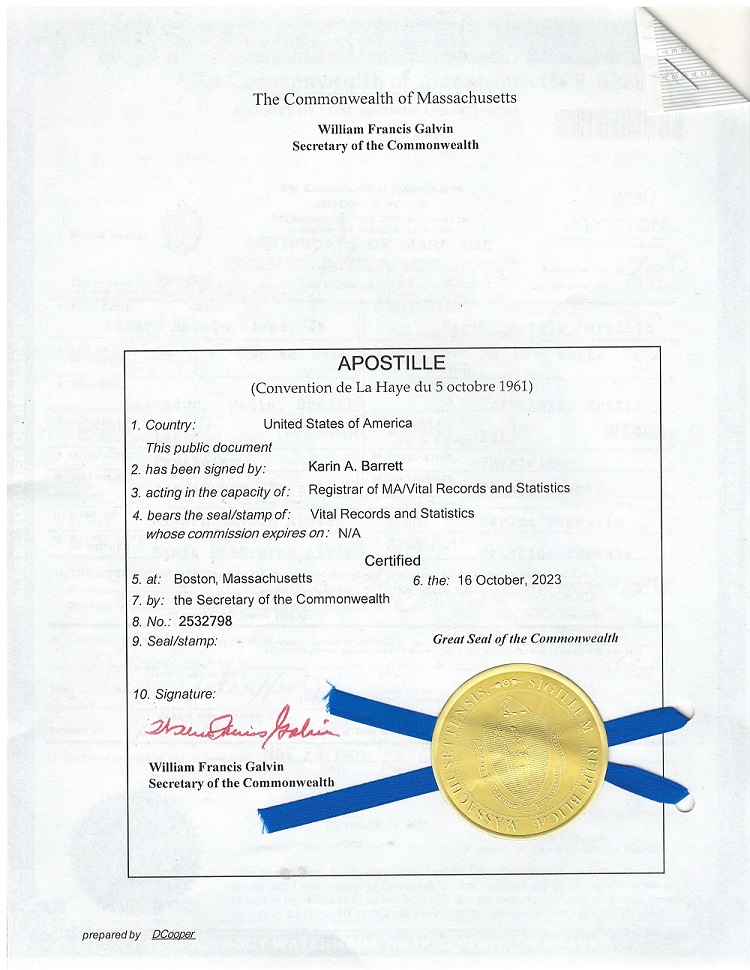Exploring the Factors Behind the Obligatory Need of Apostille Certification for Legal Papers
In the world of lawful documentation, the necessary demand of apostille accreditation has become an essential facet that dramatically impacts the validity and recognition of legal papers on a worldwide scale. Understanding the reasoning behind this need entails delving into the elaborate web of lawful intricacies, historical precedents, and global contracts that highlight the significance of apostille certification in today's interconnected globe. By discovering the underlying reasons behind this widespread need, a more clear image arises of why this relatively bureaucratic procedure holds such enormous importance for companies, individuals, and federal governments alike.
Historical Advancement of Apostille Accreditation
Just how did the concept of apostille accreditation advance over time to become a crucial part of worldwide paper recognition? The need for a simplified approach of confirming documents for use across boundaries came to be apparent as worldwide profession and traveling raised.
Initially adopted by a few European nations, the Apostille Convention slowly obtained global acceptance because of its effectiveness and efficiency in validating the authenticity of main documents. For many years, the convention's reach increased as more countries joined, acknowledging the apostille as a widely accepted type of paper verification. Today, apostille qualification has actually become a basic need for confirming lawful documents in global deals, making sure smooth interaction and legal proceedings in between countries.
Simplifying International Document Legalisation
The streamlining of global file legalisation treatments has substantially boosted efficiency in cross-border deals. Streamlining the process of legalizing records for international usage has actually become important in promoting swift and seamless deals in between nations. Among the essential systems that have actually contributed to this simplification is the adoption of the Apostille Convention, which offers a standard approach for verifying the credibility of files across taking part countries.
By sticking to the Apostille needs, nations agree to recognize each other's public papers as legitimate without the demand for more legalisation. This eliminates the lengthy and typically troublesome process of several authentications by different authorities, saving time and resources for services and individuals taken part in worldwide activities.

Making Sure Paper Authenticity and Validity
To make certain the credibility and credibility of legal records in global deals, strict verification procedures are vital - Houston Apostille. Legal documents play a vital duty in cross-border ventures, and guaranteeing their legitimacy is extremely important to maintain the integrity of such purchases. By needing apostille certification for lawful documents, authorities aim to confirm the origin of documents and confirm the signatures of people involved. This procedure assists prevent fraudulence, misstatement, and various other negligences that might threaten worldwide contracts or legal procedures.
Furthermore, validating the authenticity of legal papers via apostille certification improves trust fund and self-confidence amongst events taking part in worldwide deals. It gives assurance that the files provided are real and legitimately binding, thus lowering the threats associated with deceptive activities. Furthermore, making certain document validity via apostille certification simplifies the legalisation procedure, making it a lot more trustworthy and efficient for individuals and organizations conducting company across borders. Inevitably, by upholding strict verification standards, apostille certification adds to a more transparent and secure worldwide legal framework.

Assisting In Cross-Border Legal Recognition
In the world of global deals, the apostille accreditation not only ensures the credibility and legitimacy of lawful files but additionally plays an essential function in helping with cross-border legal acknowledgment (Houston Apostille). When legal papers birth an apostille certificate, they are readily accepted by international authorities without the demand for additional verification. This structured process expedites the acknowledgment of files in various nations, advertising effectiveness and reducing governmental obstacles in legal issues that transcend nationwide boundaries
Helping with cross-border legal acknowledgment through apostille qualification promotes trust and confidence in the credibility of papers exchanged between our website nations. This acknowledgment is specifically important in circumstances such as global company purchases, adoption procedures, or legal procedures involving celebrations from various jurisdictions. By sticking to the standards stated by the Apostille Convention, countries accept honor the apostille seals attached to records from other member nations, hence simplifying the procedure of legal acknowledgment across boundaries. Inevitably, the apostille accreditation acts as a fundamental tool in advertising smooth international legal teamwork and ensuring the smooth operation of cross-border deals.
Compliance With International Treaty Specifications
Conformity with global treaty criteria is crucial for making certain the consistent application of lawful laws throughout participating nations. The Apostille Convention, developed in 1961, outlines the requirements for the approval of public records amongst participant nations. By sticking to the requirements established forth in this treaty, countries dedicate to acknowledging the credibility of each other's certification without the demand for further verification - Houston Apostille. This mutual approval streamlines the process of cross-border file acknowledgment, promoting effectiveness and lowering administrative hurdles.
The Apostille certification, as mandated by the treaty, acts as a warranty of authenticity for documents such as birth certifications, marriage licenses, court judgments, and notarized actions. This standardized approach aids avoid fraud and makes certain that legal documents originating from one participant nation are easily approved in one more. Moreover, by adhering to worldwide treaty criteria, nations show their dedication to supporting the principles of transparency, trust, and teamwork in legal issues on a global range.
Verdict

In the realm of lawful documents, the obligatory demand of apostille qualification has actually become a vital aspect that substantially influences the validity and recognition of legal papers on a worldwide scale. Today, apostille accreditation has actually come to be a typical need for verifying lawful papers in worldwide purchases, ensuring smooth communication and legal proceedings in between have a peek here nations.
Furthermore, verifying the authenticity of legal documents through apostille certification enhances trust and confidence amongst events involving in global purchases.In the world of worldwide deals, the apostille certification not only ensures the credibility and legitimacy of lawful documents yet additionally plays an essential function in helping with cross-border legal acknowledgment. By sticking to the requirements set forth by the Apostille Convention, nations agree to recognize the apostille seals fastened to papers from other member nations, therefore simplifying website link the procedure of lawful recognition across borders.